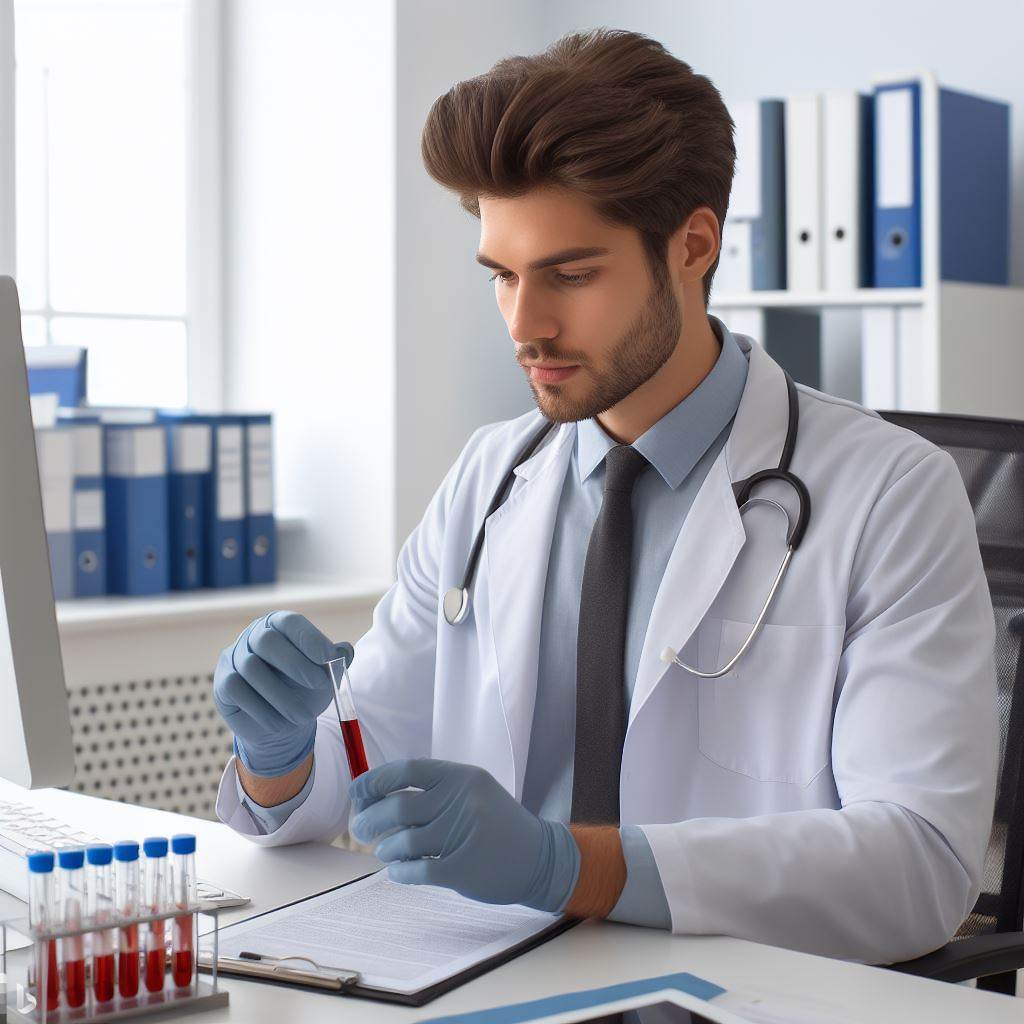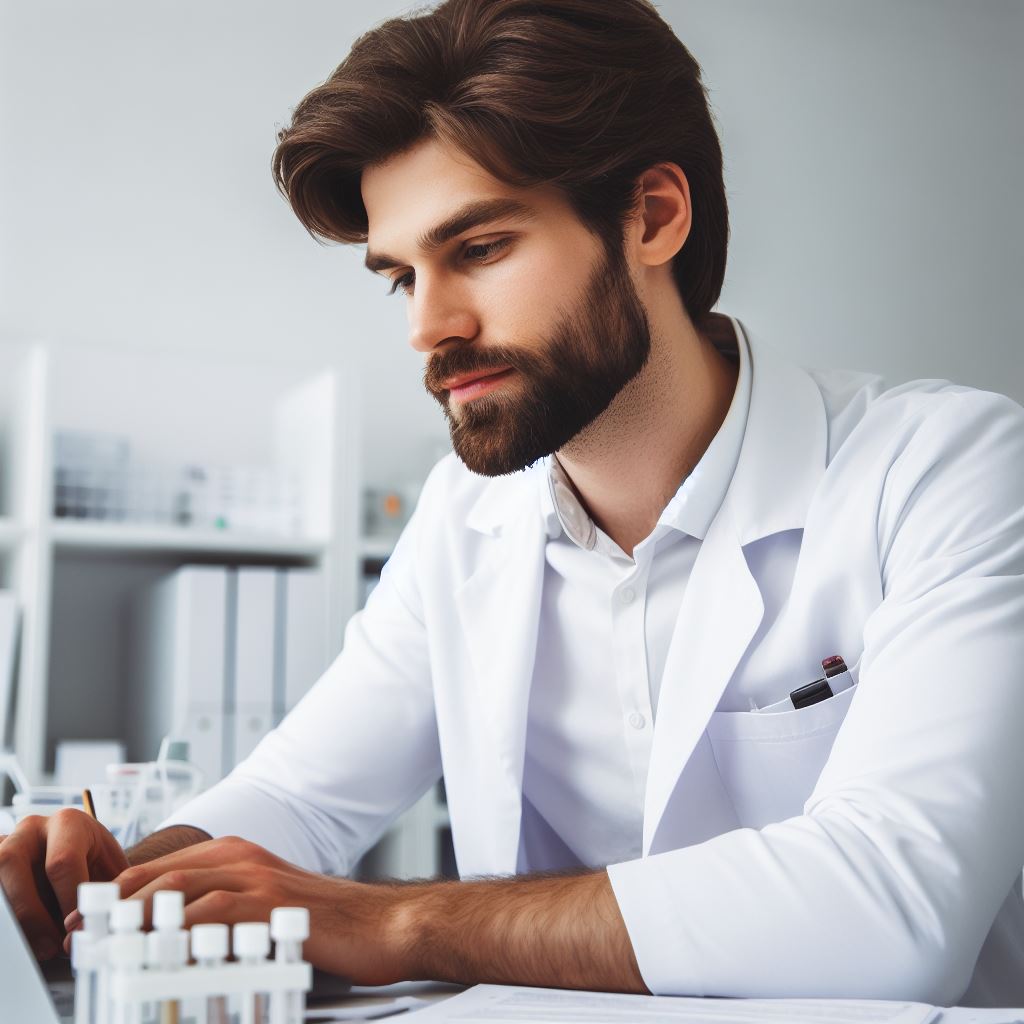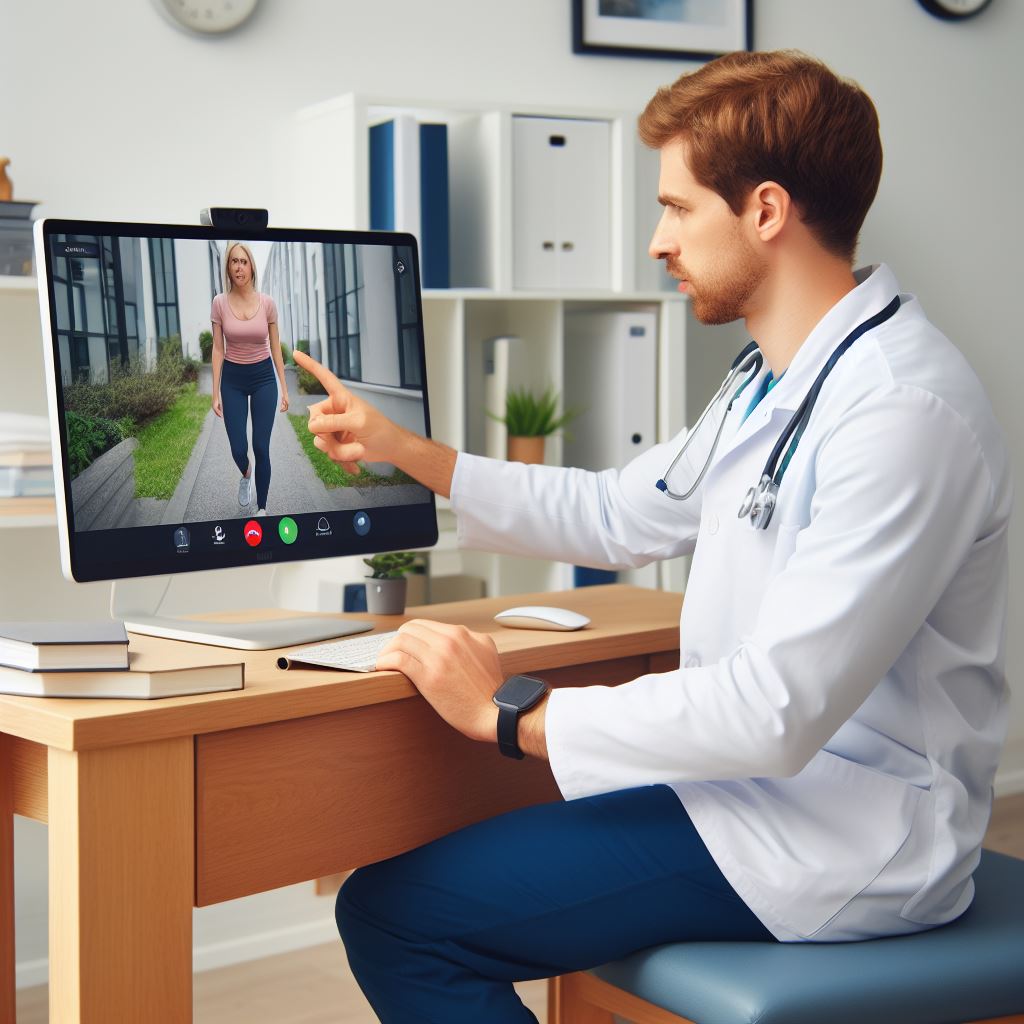Introduction
Veterinarians play a crucial role in ensuring public health and safety by protecting both human and animal populations.
This blog section will provide an overview of the importance of veterinarians in public health and safety.
Importance of Veterinarians in Public Health and Safety
Veterinarians are essential for disease prevention and control, as they possess the expertise to detect, diagnose, and treat zoonotic diseases that can be transmitted between animals and humans.
They are responsible for monitoring the health of livestock and food-producing animals, ensuring that they are free from diseases that could potentially be transmitted to humans through food consumption.
Veterinarians also play a vital role in safeguarding public health by controlling outbreaks of infectious diseases in animal populations, which can have significant implications for human health.
Through their work, veterinarians contribute to the development of policies and regulations aimed at preventing the spread of diseases and ensuring the safety of both animal and human populations.
Furthermore, they are involved in conducting research to better understand the epidemiology of diseases, enabling the implementation of effective control measures.
Overview of the topic
This blog section aims to highlight the critical role that veterinarians play in protecting public health and safety.
By exploring their involvement in disease prevention, animal health monitoring, outbreak control, policy development.
Also research, readers will gain insight into the extensive responsibilities of veterinarians in ensuring the well-being of both animals and humans.
In addition, the contributions of veterinarians are indispensable for maintaining public health and safety, making their role crucial in preventing the transmission of diseases between animals and humans.
The role of veterinarians in public health and safety is crucial in disease prevention.
Veterinarians play an essential role in monitoring and controlling zoonotic diseases, conducting disease surveillance, and implementing vaccination programs.
Role of veterinarians in disease prevention
Monitoring and controlling zoonotic diseases
Zoonotic diseases are illnesses that can be transmitted between animals and humans. Veterinarians are responsible for identifying, monitoring, and controlling these diseases to prevent their spread to humans.
By actively monitoring zoonotic diseases, veterinarians can detect outbreaks early and take appropriate measures to contain them.
Conducting disease surveillance
Disease surveillance is another important task of veterinarians in public health and safety. They collect and analyze data on animal diseases to identify trends and potential threats.
This information is crucial for early detection and response to outbreaks, as well as for understanding the transmission dynamics of diseases.
Implementing vaccination programs is a key aspect of disease prevention that veterinarians are involved in. Vaccinations help protect animals from contagious diseases and reduce the risk of transmission to humans.
Veterinarians are responsible for developing vaccination protocols, administering vaccines, and educating pet owners and livestock producers about the importance of vaccination.
Implementing vaccination programs
Besides disease prevention, veterinarians also play a vital role in public health emergency preparedness and response.
They are often involved in planning and coordinating efforts to respond to disease outbreaks or other public health emergencies.
Veterinarians work closely with other healthcare professionals, government agencies, and stakeholders to ensure effective response strategies and minimize the impact of such emergencies.
In addition to their roles in disease prevention and emergency response, veterinarians are also involved in food safety and security.
They play a critical role in ensuring the safety of our food supply by monitoring and inspecting food production facilities.
Conducting tests for contaminants, and providing guidance on proper handling and storage of food products.
Veterinarians are also key contributors to the field of One Health, which recognizes the interconnectedness of animal, human, and environmental health.
They collaborate with other healthcare professionals and scientists to address complex health challenges that require a multidisciplinary approach.
The role of veterinarians in public health and safety cannot be overstated.
They are crucial in preventing the spread of zoonotic diseases, conducting disease surveillance, implementing vaccination programs, and ensuring food safety.
By actively fulfilling their roles, veterinarians contribute to the overall well-being of both animals and humans and help protect public health on a global scale.
In review, veterinarians have a significant role in public health and safety, particularly in disease prevention.
Their roles include monitoring and controlling zoonotic diseases, conducting disease surveillance, implementing vaccination programs, and ensuring food safety.
By actively fulfilling these responsibilities, veterinarians contribute to the overall well-being of both animals and humans, playing a vital role in protecting public health.
Role of Veterinarians in Food Safety
Veterinarians play a crucial role in ensuring the safety and quality of food products. They are responsible for inspecting food production facilities and offering guidance on proper animal handling and hygiene practices.
1. Ensuring the safety and quality of food products
Veterinarians are trained to assess the overall health of animals and determine if they are fit for human consumption. This includes conducting regular inspections and tests to identify any potential health risks.
Transform Your Career Today
Unlock a personalized career strategy that drives real results. Get tailored advice and a roadmap designed just for you.
Start Now2. Inspecting food production facilities
Veterinarians are often involved in inspecting food production facilities to ensure that they meet the required health and safety standards.
This involves checking for proper sanitation, storage, and handling of food products.
3. Offering guidance on proper animal handling and hygiene practices
Veterinarians work closely with food producers and farmers to ensure that animals are treated and handled properly to avoid any contamination of food products.
They provide guidance on proper vaccination, medication, and feeding practices to minimize the risk of diseases.
4. Monitoring and controlling infectious diseases
Veterinarians play a crucial role in identifying and managing infectious diseases that can be transmitted from animals to humans through food consumption.
They work with public health officials to implement preventive measures and control outbreaks.
5. Implementing food safety regulations and policies
Veterinarians are knowledgeable about food safety regulations and policies and can help ensure that these are properly implemented.
They assist in developing and enforcing regulations to protect public health and safety.
6. Conducting research and providing education
Veterinarians also contribute to research efforts to improve food safety practices.
They conduct studies, analyze data, and provide education and training to food producers, veterinarians, and the general public on best practices in food safety.
7. Collaborating with other professionals
Veterinarians work in collaboration with other public health professionals, such as epidemiologists, microbiologists, and environmental health specialists, to address food safety concerns.
They form interdisciplinary teams to investigate outbreaks and develop effective control strategies.
8. Ensuring proper use of antibiotics and medication
Veterinarians play a crucial role in ensuring that antibiotics and medication are used responsibly in animals.
They work to prevent the development of antibiotic-resistant bacteria and promote the appropriate use of medications to ensure the safety of food products.
9. Providing emergency response
In the event of a food safety emergency, veterinarians are often involved in the response efforts.
They assist in identifying the source of contamination, implementing control measures, and providing necessary treatment to affected animals.
10. Contributing to a safer food supply
Through their expertise and efforts, veterinarians contribute to a safer food supply, protecting public health and ensuring the quality and integrity of food products.
Veterinarians play a critical role in food safety by ensuring the safety and quality of food products, inspecting production facilities.
Offering guidance on proper animal handling and hygiene practices, and collaborating with other professionals to protect public health and safety.
Their expertise and efforts contribute to a safer food supply for all.
Read: The Evolving Role of Nurses in American Healthcare
Role of veterinarians in environmental health
Veterinarians play a crucial role in ensuring public health and safety by actively participating in environmental health initiatives.
They are trained professionals who are uniquely qualified to identify and address potential public health hazards.
Identifying and addressing potential public health hazards
Veterinarians are skilled at identifying and managing various health risks that can pose a threat to public safety. They work collaboratively with other professionals to assess and mitigate hazards such as:
- Contaminated water sources
- Air pollution from industrial activities
- Contaminants in soil and food products
- Vector-borne diseases transmitted by animals
By actively monitoring and assessing these risks, veterinarians ensure that appropriate measures are taken to safeguard human health.
Assessing the impact of industrial activities on human health
Veterinarians also have a significant role in evaluating the impact of industrial activities on human health.
They are involved in conducting research and analyzing data to determine the potential risks posed by pollutants released into the environment.
With their expertise, they provide valuable insights into the long-term consequences of these activities on both animals and humans.
Furthermore, veterinarians collaborate with industry professionals to develop strategies to minimize the adverse effects on public health.
They actively participate in the implementation of measures aimed at reducing pollution, promoting sustainable practices, and enhancing environmental safety.
Participating in disaster preparedness and response efforts
Veterinarians are an essential asset when it comes to disaster preparedness and response efforts. They are involved in various stages of emergency management, including:
- Developing response plans and protocols
- Providing emergency medical care for affected animals
- Evaluating and managing the impact of disasters on animal and human health
- Assisting in rescue and evacuation operations
During natural disasters or disease outbreaks, veterinarians work alongside other health professionals to ensure the safety and well-being of both humans and animals.
Their expertise in zoonotic diseases, those transmitted between animals and humans, proves invaluable in preventing the spread of infectious diseases.
Veterinarians play a vital role in environmental health, contributing to the overall public health and safety.
Their expertise enables them to identify and address potential hazards, assess the impact of industrial activities, and actively participate in disaster preparedness and response efforts.
By working collaboratively with other professionals, veterinarians contribute significantly to safeguarding the environment and promoting a healthier society.
Read: Earnings Outlook: What to Expect as a Nurse in the USA
Transform Your Career Today
Unlock a personalized career strategy that drives real results. Get tailored advice and a roadmap designed just for you.
Start Now
Find Out More: Average Salary and Job Outlook for Substance Abuse Counselors
Collaboration with Other Professionals
Veterinarians play a crucial role in public health and safety by collaborating with various professionals in different sectors.
This collaboration is essential for addressing and preventing health issues that may arise from animal-related diseases.
By working together, veterinarians can contribute to the overall well-being of both humans and animals.
Working with Physicians and Other Healthcare Providers
Veterinarians regularly collaborate with physicians and other healthcare providers to ensure the health and safety of both animals and humans.
This partnership allows for a comprehensive approach to healthcare, taking into account the interconnectedness of human and animal health.
For example, veterinarians and physicians work together in cases where diseases can be transmitted between animals and humans, such as zoonotic diseases.
By sharing information and expertise, they can develop effective strategies for preventing and treating these diseases.
In addition, veterinarians and physicians collaborate in the area of medical research.
By studying diseases that affect both animals and humans, they can gain a better understanding of the underlying causes and develop improved treatments.
Collaborating with Epidemiologists and Researchers
Veterinarians also collaborate with epidemiologists and researchers to monitor and address public health issues.
Epidemiologists study patterns and causes of diseases within a population, and veterinarians provide invaluable insights and data on animal-related diseases.
This collaboration is particularly crucial in identifying and controlling disease outbreaks.
By combining their expertise, veterinarians and epidemiologists can track the spread of diseases, identify risk factors, and develop effective control measures.
Furthermore, veterinarians work closely with researchers to study various aspects of animal health and public safety.
They contribute to research projects exploring topics such as food safety, antimicrobial resistance, and environmental health.
Coordinating with Government Agencies and Regulatory Bodies
Veterinarians collaborate with government agencies and regulatory bodies to develop and enforce regulations that ensure public health and safety.
They play a crucial role in implementing policies related to animal welfare, disease control, and food safety.
By cooperating with government agencies, veterinarians help develop guidelines for the safe handling and transportation of animals.
They also contribute to the establishment of standards for the production and distribution of animal-derived food products.
To summarize, veterinarians assist in regulatory inspections and investigations to monitor compliance with health and safety regulations.
They provide expert advice on matters related to animal health and contribute to the development of new regulations aimed at preventing and addressing emerging public health risks.
Finally, collaboration with other professionals is vital for veterinarians to fulfill their role in public health and safety.
By working hand in hand with physicians, epidemiologists, researchers, and government agencies, veterinarians can contribute to a healthier and safer environment for both animals and humans.
Read: Continuing Education for Nurses: Why and How in the US?
Educational and licensing requirements
In order to become a veterinarian, there are certain educational and licensing requirements that must be met.
These requirements ensure that veterinarians are well-trained and able to provide quality care to both animals and humans.
Obtaining a Doctor of Veterinary Medicine degree
One of the first steps in becoming a veterinarian is obtaining a Doctor of Veterinary Medicine degree. This typically requires completing a rigorous four-year program at an accredited veterinary school.
During this time, students gain a deep understanding of animal anatomy, physiology, and diseases, as well as essential clinical skills.
Completing internships and residencies
To further enhance their knowledge and skills, aspiring veterinarians often complete internships and residencies.
These programs provide valuable hands-on experience in various areas of veterinary medicine, such as small animal medicine, large animal medicine, or exotic animal medicine.
Internships and residencies allow veterinarians to work alongside experienced professionals and gain practical skills that are crucial for their future career.
After completing their degree and training, aspiring veterinarians must acquire licenses and certifications to practice.
The specific requirements for licensure vary by state, but they typically involve passing a national licensing examination.
This examination tests the veterinarian’s knowledge and competency in various areas of veterinary medicine.
Additionally, some states may require veterinarians to pass a state-specific examination or fulfill additional requirements.
Acquiring licenses and certifications
In addition to obtaining a license, veterinarians may also choose to pursue certifications in specialized areas of veterinary medicine.
These certifications demonstrate a veterinarian’s expertise and dedication to a particular field.
For example, a veterinarian may become board-certified in areas such as internal medicine, surgery, or dermatology.
These certifications require veterinarians to meet certain experience requirements, undergo additional training, and pass a rigorous examination.
By meeting these educational and licensing requirements, veterinarians play a crucial role in public health and safety.
They are responsible for ensuring the well-being of animals and preventing the spread of diseases that can affect both animals and humans.
Through their training and expertise, veterinarians can identify and treat illnesses in animals, conduct research, and educate the public on best practices for pet care and disease prevention.
Basically, the journey to becoming a veterinarian involves obtaining a Doctor of Veterinary Medicine degree, completing internships and residencies, and acquiring licenses and certifications.
These requirements ensure that veterinarians are well-prepared to provide quality care and contribute to public health and safety.
Through their dedication and expertise, veterinarians play a vital role in protecting the health and well-being of both animals and humans.
Transform Your Career Today
Unlock a personalized career strategy that drives real results. Get tailored advice and a roadmap designed just for you.
Start NowRead: The Pros and Cons of Travel Nursing Across States
Uncover the Details: How COVID-19 Impacted the Pharmacy Profession in the US
Conclusion
Veterinarians are linchpins in upholding public health and safety, contributing significantly to disease control, food safety, and zoonotic disease surveillance.
Their diverse roles span from animal health management to environmental safety, reinforcing the interconnectedness between animal and human health.
Society greatly benefits from their vigilant efforts, safeguarding against infectious diseases and ensuring the safety of our food supply.
It’s imperative to acknowledge and support their multifaceted contributions, which extend beyond pet care to broader societal well-being.
The collaborative efforts of veterinarians in research, disease control, and health policy implementations are indispensable in ensuring a healthy and safe environment.
Let’s elevate our appreciation for these professionals, recognizing their pivotal role in preserving public health.
Also safety measures, and advocating for continued support for their invaluable contributions to society.
[E-Books for Sale]
The Big Book of 500 High-Paying Jobs in America: Unlock Your Earning Potential
$19.99 • 500 High-Paying Jobs • 330 pages
Explore 500 high-paying jobs in America and learn how to boost your career, earn more, and achieve success!
See All 500 High-Paying Jobs of this E-Book
1001 Professions Without a Degree: High-Paying American Jobs You Can Start Now
$19.99 • 1001 Professions Without a Degree • 174 pages
Discover 1001 high-paying jobs without a degree! Unlock career tips, skills, and success strategies for just $19.99!




